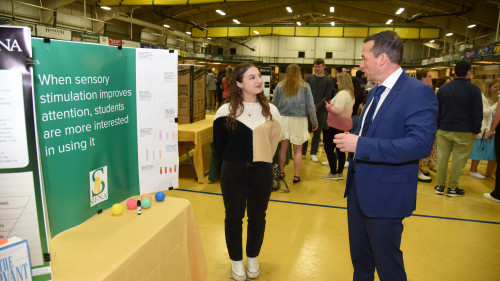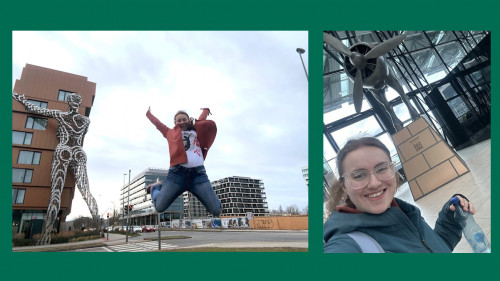

By Jenna Kersten ’17
The work that students do here at Siena oftentimes leads to opportunities off-campus. This was the case for history major Francis Butler ’15. He presented alongside tenured history faculty from New York universities, public and amateur historians, Siena graduates Kelli Huggins '10 and Cassandra Jane Werking'13 and other students at the Researching New York Conference at the University at Albany in late November.
This conference focuses entirely on New York history with a different theme each year. The idea of identity and self-awareness throughout history was the focus of this year’s conference.
Butler presented his paper “African American Albany: A View from the Census: 1855-1857.” In it, he researched the demographics and lifestyle of the free African Americans who lived in Albany during that period.
“By presenting at a conference, it gives me a chance to receive feedback from professionals in the field. This gives me good gage on the quality of my work and the applicability that it has to the work that actual historians are doing day in and day out,” Butler said, adding that presenting his work in this type of setting gives him credibility as a historian.
With the help of several faculty mentors, including history professors Bruce Eelman, Ph.D. and Jennifer Dorsey, Ph.D. and Assistant Director of Academic Community Engagement Ruth Kassel, Ph.D., Butler was able to develop a thesis and researchable question that had implications in the outside community.
His research was sponsored by the Dake Fellowship Program through the Academic Community Engagement program, which provides fellows with money to live on campus during the summer and partake in research and service. Butler’s work will also become part of his honors thesis. Butler’s research will ultimately help the Underground Railroad History Project of the Capital Region, a non-profit organization that works to promote local understanding of the Underground Railroad movement in Albany.
“It’s not just about going to the library at Siena and doing your research there and then writing a research paper,” Butler said. “It’s about going out to historic sites or going out to community organizations and seeing how the work that I do applies to their own work, then collaborating with them to build and execute projects that are meaningful, both to the community organizations and the work that I want to do.”
Butler is interested in careers related to education and how it can be used to empower youth, so whether he pursues a graduate degree or decide to become a history teacher, Butler’s experiences researching the past will serve him well in his post-Siena future.

